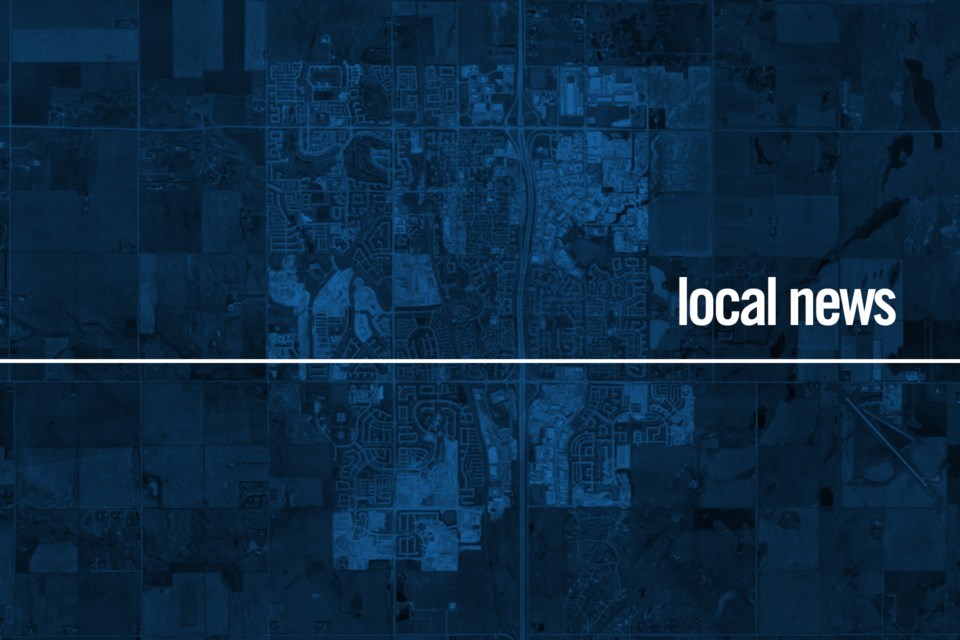LAKELAND – The Capella Centre, like other women's shelters in the Lakeland, continues its efforts to help women and children in crisis, reminding members of the community experiencing domestic violence that the shelter is available to those in need.
Andrea Myers, executive director, says she is thankful the Capella Centre, based in St. Paul, can continue operating despite the many challenges that exist. Myers also noted that a recent shelter expansion “made it a lot easier to help people in the area,” which is always the shelter's goal.
“The fact that we’re still able to support people to the best of our ability on an ongoing basis – that’s really the accomplishment,” said Myers.
Community awareness is also important at the Capella Centre because it lets “everyone in the community know that we’re available,” said Myers. “If they need support for domestic violence, they should be reaching out and we’ll do our best to help them.”
Data recently released by the Alberta Council of Women’s Shelters (ACWS) indicates that women’s shelters under the ACWS umbrella are experiencing various challenges. When asked about local data in relation to the report, Myers said the data presented is reflective of all women’s shelters across the province.
Alberta Council of Women’s Shelters (ACWS) Report
According to the report, from April 1, 2021, to March 31, 2022, shelters were “under-resourced,” which ACWS states means “not everyone gets the help they need.”
Due to shelters being at physical capacity, the report also indicates that over 11,546 women and seniors were turned away, along with 6,241 children “who would have accompanied them had there been space.”
Meanwhile, 7,570 requests by women and seniors, along with 3,336 children who would have accompanied them, have been turned away due to “other reasons,” which can include staff shortages, or the shelter not having the resources to meet the “complexity of their needs safely.” For example, individuals have been turned away due to substance use.
Substance abuse has a “significant” link to domestic violence, since the use of alcohol or drugs can provide “temporary distraction and relief” for people experiencing - or who have previous experiences - of domestic violence, according to the report.
However, shelters do not have the appropriate resources to help an individual whose substance use can negatively impact children and other residents at a shelter.
ACWS also states that most shelters do not have the “appropriate staff” to function as a detox facility. “This problem is exacerbated in rural areas where detox beds are limited or nonexistent,” states the report.
Staff shortages
The ACWS also reports that staff are exhausted due to providing essential service throughout the pandemic, in addition to “stagnant” wages that are “substantially below market value.”
“Funding for shelter staff is based on the provincial government’s staffing model,” according to the report, which it stated has remained frozen with few adjustments for close to a decade.
In addition to challenges like staff shortages and lack of resources, ACWS also indicates that women’s shelters lack funding.
Women’s shelters basic operating costs have been frozen, according to the report, which in addition to a rise in inflation, means many ACWS member shelters’ budgets are getting tighter.
“Currently, shelters in some communities are unfunded and most fundraise all of their operating costs,” reads the report.
No place to go
People who have been turned away have limited safe places to go, according to ACWS, and “Many will end up sleeping in cars, on the streets, living temporarily with friends or relatives, or returning to their abuser.”
When asked about the ACWS report during a media conference on Dec. 7, Minister of Seniors, Community, and Social Services Jeremy Nixon said it is important for people experiencing domestic violence to have somewhere to go.
“We are doing and will do everything we can to make sure that individuals fleeing domestic violence have support,” said Nixon. “And I am looking into this.”
Nixon also affirmed the stagnant wages for staff stated in the report is an issue he will look at. “We’re seeing this right across the social sector... so we are looking at addressing the workforce challenges, and wages is a big part of that.”
Janis Irwin, Edmonton-Highlands-Norwood MLA and NDP Critic for Women and LGBTQ2S+ Issues also released a statement on Dec. 8 regarding the ACWS the report.
“Chronic underfunding is the root cause of these issues, and the UCP refuses to address it head on,” said Irwin. “This government seems to believe they are not responsible for the Albertans who are out on the streets, or for those who have been turned away from homeless and women’s shelters.”
She added, “This is a growing crisis, and one that has a disproportionate effect on rural and Indigenous women who have fewer support options.”



